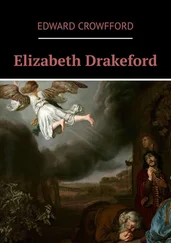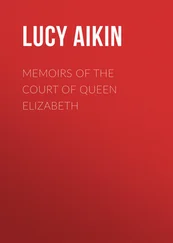Edward Beesly - Queen Elizabeth
Здесь есть возможность читать онлайн «Edward Beesly - Queen Elizabeth» — ознакомительный отрывок электронной книги совершенно бесплатно, а после прочтения отрывка купить полную версию. В некоторых случаях можно слушать аудио, скачать через торрент в формате fb2 и присутствует краткое содержание. Жанр: foreign_antique, foreign_prose, на английском языке. Описание произведения, (предисловие) а так же отзывы посетителей доступны на портале библиотеки ЛибКат.
- Название:Queen Elizabeth
- Автор:
- Жанр:
- Год:неизвестен
- ISBN:нет данных
- Рейтинг книги:5 / 5. Голосов: 1
-
Избранное:Добавить в избранное
- Отзывы:
-
Ваша оценка:
- 100
- 1
- 2
- 3
- 4
- 5
Queen Elizabeth: краткое содержание, описание и аннотация
Предлагаем к чтению аннотацию, описание, краткое содержание или предисловие (зависит от того, что написал сам автор книги «Queen Elizabeth»). Если вы не нашли необходимую информацию о книге — напишите в комментариях, мы постараемся отыскать её.
Queen Elizabeth — читать онлайн ознакомительный отрывок
Ниже представлен текст книги, разбитый по страницам. Система сохранения места последней прочитанной страницы, позволяет с удобством читать онлайн бесплатно книгу «Queen Elizabeth», без необходимости каждый раз заново искать на чём Вы остановились. Поставьте закладку, и сможете в любой момент перейти на страницу, на которой закончили чтение.
Интервал:
Закладка:
The Scotch Lords, finding that Elizabeth was determined to have some solid return for her money, went to work with more vigour. They proclaimed the deposition of the Regent, drove her from Edinburgh, and besieged her and her French garrison in Leith. But this burst of energy was soon over. The Protestants were more ready to pull down images and harry monks than make campaigns. Leith was not to be taken. In three weeks their army dwindled away, and the little disciplined force of Frenchmen re-entered Edinburgh.
The position had become very critical for Elizabeth. A French army of 15,000 men was daily expected at Leith. If once it landed, the Congregation would be crushed; the Hamiltons would make their peace; and the disciplined army of d’Elbœuf, swelled by hordes of hungry Scotchmen, would pour over the Border and proclaim Mary in the midst of the Catholic population which ten years later rose in rebellion under the northern Earls.
In this difficulty the Spanish Ministers in the Netherlands were consulted. If Elizabeth expelled the garrison at Leith, and so brought upon herself a war with France, could she depend on Philip’s assistance? The reply was menacing. Their master, for his own interest, could not allow the Queen of France and Scotland to enforce her title to the throne of England. But he would oppose it in his own way. If a French army entered England from the north, a Spanish army would land on the south coast. Turning to her own Council for advice, Elizabeth found no encouragement. They recommended her to take Philip’s advice, and even to retrace some of her steps in the matter of religion in order to propitiate him. She made a personal appeal to the Duke of Norfolk to take the command of the forces on the Border. But he declined to be the instrument of a policy which he disapproved.
We need not wonder if Elizabeth hesitated for a while. Some of these councillors were not too well affected to her. But most of them were thoroughly loyal, and there was really much to be said for the more cautious policy. She herself was an eminently cautious politician, inclined by nature to shrink from risky courses. Never, therefore, in her whole career did she give greater proof of her large-minded comprehension of the main lines of policy which it behoved her to follow than when she determined to override the opinions of so many prudent advisers, and expel the French force from the northern kingdom.
England was not quite in the helpless, disabled position that it pleased the Spaniards to believe. Twelve months of careful and energetic administration had already done wonders. There had been wise economy and wise expenditure. Money had been scraped together, and, though there was still a heavy debt, the legacy of three wasteful reigns, the confidence of the Antwerp money-lenders had revived, and they were willing to advance considerable sums. A fleet had been equipped and manned; shiploads of arms had been imported; forces had been collected on the south coasts. The Border garrisons had been quietly raised in strength till they were able to furnish an expeditionary force at a moment’s notice.
The smallest energy on the part of the Congregation might have finished the war without the presence of an English force. Elizabeth had a right to be angry. The Scotch Protestants expected to have the hardest part of the work done for them, and to be paid for executing their own share of it. Lord James and a few of the leaders were in earnest, but others were selfish time-servers. As for the lower class, their Calvinism was still new. It had not yet bred that fierce spirit of independence which before long was to outweigh the force of nobles and gentry. But if the weakness of the Anglophile party was disappointing, it had at all events shown that Elizabeth must depend upon herself to ward off danger on that side; and after some reasonable hesitation she decided to put through the work she had begun.
It says much for the patriotism of Elizabeth’s Council that when they found she had made up her mind they did not stand sulkily aloof, but co-operated heartily and vigorously in carrying out the policy they had opposed. Norfolk himself accepted the command of the Border army, and acted throughout the affair with fidelity and diligence. He was not a man distinguished by ability of any kind, and the actual fighting was to be done by Lord Grey, a firm and experienced, though not brilliant, commander. But that the natural leader of the Conservative nobility should be seen at the head of Elizabeth’s army was a useful lesson to traitors at home and enemies abroad, who were telling each other that her throne was insecure.
An agreement between the English Queen and the Lords of the Congregation was drawn up (February 27), with scrupulous care to avoid the appearance of dictation and encroachment which had gathered all Scotland to Pinkie Cleugh eleven years before. It set forth that the English troops were entering Scotland for no other object than to assist the Duke of Chatelherault, the heir-presumptive to the throne, and the other nobles, to drive out the foreign invaders. They would build no fortress. There was no intention to prejudice Mary’s lawful authority. Cecil appears to have wanted to add something about “Christ’s true religion;” but Elizabeth struck it out. Circumstances might compel her to be the protector of foreign Protestants; but neither then nor at any other time did she desire to pose in that character.
A month later (March 28th) Lord Grey crossed the Border, and marched to Leith. The siege of that place proved to be tedious. The Lords of the Congregation gave very insufficient assistance; and, when an assault had been repulsed with heavy loss, the citizens of Edinburgh would not receive the wounded into their houses. At last, when food was running short in the town, an envoy from France arrived with power to treat on behalf of the Queen of Scots. Her mother, the Regent, had died during the siege. After much haggling a treaty was signed. No French troops were in future to be kept in Scotland. Offices of State were to be held only by natives. The government during Mary’s absence was to be vested in a Council of twelve noblemen; seven nominated by her and five by the Estates. Elizabeth’s title to the kingdoms of England and Ireland was recognised (July 1560).
Such was the Treaty of Edinburgh, or of Leith, as it is sometimes called, one of the most successful achievements of a successful reign. It was gained by wise counsel and bold resolve; and its fruits, though not completely fulfilling its promise, were solid and valuable. It was not ratified by Mary. But her non-ratification in the long-run injured no one but herself, besides putting her in the wrong, and giving Elizabeth a standing excuse for treating her as an enemy. England was permanently free from the menace of a disciplined French army in the northern kingdom. Nothing was settled in the treaty about religion. But this was equivalent to a confirmation of the violent change that had recently taken place; in itself a guarantee of security to England.
The moral effect of this success was even greater than its more tangible results. It had been very generally believed, at all events abroad, that Elizabeth was tottering on her throne; that the large majority were on the point of rising to depose her; that, wriggle as she might, she would find she was a mere protégée of Philip, with no option but to follow his directions and square her policy to his. Whatever small basis of fact underlay this delusive estimate had been ridiculously exaggerated in the reports sent to Philip by his ambassador De Quadra, a man who evidently paid more attention to hole-and-corner tattle than to the broad forces of English politics.
All these imaginings were now proved to be vain. Elizabeth had shown that she could protect herself by her own strength and in her own way. She had civilly ignored Philip’s advice, or rather his injunctions. She had thrown down the glove to France, and France had not taken it up. She had placed in command of her armies the very man whom she was supposed to fear, and he had done her bidding, and done it well. England once more stood before Europe as an independent power, able to take care of itself, aid its friends, and annoy its enemies.
Читать дальшеИнтервал:
Закладка:
Похожие книги на «Queen Elizabeth»
Представляем Вашему вниманию похожие книги на «Queen Elizabeth» списком для выбора. Мы отобрали схожую по названию и смыслу литературу в надежде предоставить читателям больше вариантов отыскать новые, интересные, ещё непрочитанные произведения.
Обсуждение, отзывы о книге «Queen Elizabeth» и просто собственные мнения читателей. Оставьте ваши комментарии, напишите, что Вы думаете о произведении, его смысле или главных героях. Укажите что конкретно понравилось, а что нет, и почему Вы так считаете.












